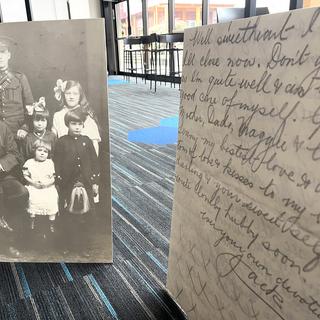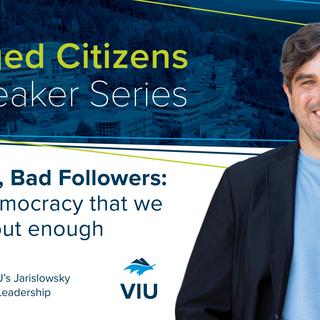The VIU Political Studies Professor has penned a new book.
Three years ago, VIU Political Studies Professor and Department Chair Dr. Mark Williams began working on concepts and themes for what would ultimately become his new, recently published book.
Williams, the author of The Politics of the Asia-Pacific: Triumphs, Challenges, and Threats, says the process involved developing a vision for the book, reaching out to experts and putting forward his proposal for a manuscript, which was then peer-reviewed.
All that work has paid off, and his new book has now been published by the University of Toronto Press.
And this Friday, February 4, Williams will host a reading and discussion in the Malaspina Theatre Lobby from 10 to 11:30 am. Seating will be capped at 50% and proof of COVID-19 vaccination is required.
Want to learn more before then? We got Williams to answer five questions about his book.
Where did the idea to write this book come from?
There were two sources of inspiration that I had for The Politics of the Asia-Pacific: Triumphs, Challenges, and Threats. The first came from teaching The Politics of Asia at VIU. I previously had to rely on an assortment of articles and chapters from a range of books to form a reading list because there were no books that presented anything close to a comprehensive overview of the major political issues of the Asia-Pacific. The second source of inspiration came from my attempts to incorporate classroom simulations in a number of the courses that I teach in Political Studies and Global Studies. I started developing a number of active-learning strategies and had the idea that my book on the politics of the Asia-Pacific would include chapters that outlined simulations for professors to run with their students.
What was the process of writing this book like?
I started working on the concepts and themes of the book three years ago. Once I developed a vision for the book I began to reach out to experts on different countries and issues related to the politics of the Asia-Pacific to get a sense of who might be interested in contributing a chapter. I then put together a manuscript proposal that was reviewed by the editorial board at the University of Toronto Press, followed by an anonymous peer-review. After we got the approvals from UTP and I received a contract for the book, my contributors and I started writing the chapters. About a year later, we finished the first draft of the book and it went out for blind peer-review and a review with Political Science faculty at the University of Toronto who have expertise on the region. A number of important ideas emerged after this review of the complete manuscript, including the inclusion of public policy-based chapters. I worked on these revisions over the next six months and then the book went out for a final peer-review. Once everybody was happy with the product we undertook copy-editing, typesetting, and selecting maps and figures that are used in the book. It took approximately three years to complete, but it did involve a significant amount of time waiting for feedback and reviews. In some ways, the waiting time was also quite helpful because it allowed me to reflect on the strengths and weaknesses of chapter drafts, and to think through how the book all fit together.
What was the most unexpected thing you discovered while writing this book?
The COVID-19 pandemic started just as we were finishing up the first draft of The Politics of the Asia-Pacific. Considering the origins of the virus in Wuhan, China, and the resulting international tensions that emerged surrounding the extent to which China was reporting to the World Health Organization in good faith, this required some important additions to the book, especially in the introduction.
What do you think is the biggest takeaway from this book?
The Asia-Pacific region is in the process of profoundly shaping the world order in the present and in the coming decades. Students will be well-served to understand the region’s triumphs, challenges and threats.
How does it feel to have this book out and published, and what is next for you?
I feel immensely proud to have this book published with the University of Toronto Press. It has been my pleasure to work with my esteemed contributors, which include two VIU Geography Professors, Dr. Matthew Bowes and Dr. Jeff Lewis, and four former VIU students who co-authored chapters with me.





